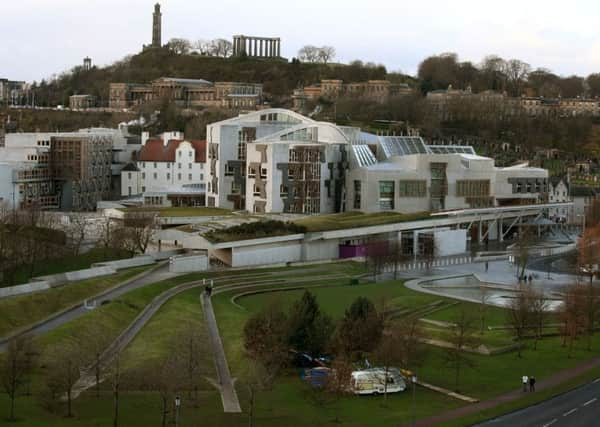Brian Wilson: '˜What has Holyrood done in the last 20 years?'


Brian Wilson also says that Labour’s downfall in Scotland was down to the party allowing Holyrood to be seen a “staging-post” for nationalists to push for independence.
Mr Wilson, who was energy and trade minister under Tony Blair, had initially opposed devolution in the 1970s, but says the rise of Thatcherism in the 1980s meant the onset of a Scottish parliament had become “irresistible”.
Advertisement
Hide AdAdvertisement
Hide AdBut flagship changes imposed by MSPs like the smoking ban are “not on the same” level as fundamental changes in Scottish society enacted by Westminster, he told BBC Radio Scotland’s Good Morning Scotland yesterday. These include the rights of children with additional needs to an education.
“If you look at it now, and I don’t have any interest in being negative about the thing, but what has it actually done?” Mr Wilson said.
“I think you’re entitled to ask at this stage what are the big achievements of the Scottish Parliament now over almost 20 years? A generation will come up that is fed into the myth that nothing was done through Westminster.”
But Mr Wilson insisted Scotland “led the UK, maybe led the world” in recognising the need for children with additional needs to an education. “That was done through Westminster distinct to Scotland,” he said.
Scotland also “led the world” in the treatment of young offenders in the criminal justice system, he added.
“I could go through half a dozen of these major social changes that were done on a distinctive basis before,” he added.
“All I’m saying is, point me to something that the Scottish Parliament has done that is of equal significance to this.”
He added: “I’m in favour of the smoking ban and good on them, but it’s hardly on the same level.”
Advertisement
Hide AdAdvertisement
Hide AdAnd Labour’s current woes stem from its failure to mark out the ground of devolution clearly enough. “I think allowing devolution to be seen as a kind of a staging-post and to fail to mark out clearly enough the differentiation between devolution and independence – in other words to try to draw the line in that constitutional arrangement – was a failure.
“So much effort and intellectual energy had gone into the process of creating devolution, but not nearly enough thought had been given to do with it once you’ve got it.”
He said that was partly down to the “appalling” publicity which Holyrood attracted in its early years amid anger over spiralling costs of the building.
“It didn’t get a chance to establish itself or a Labour administration to establish itself,” he said.
As the political debate came to be dominated by the constitutional issues, voters came to question the “relevance” of a party like Labour which is pushing for social change. He also praised Kezia Dugdale’s “brave” performance as Labour leader in Scotland.